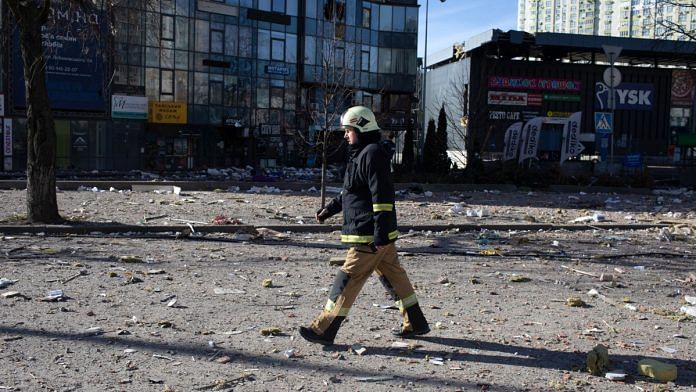New Delhi: The Russian invasion of Ukraine has led to a mass displacement of Ukrainians from their homes, both within the country, as they flee from war zones, and to foreign lands, according to the United Nations.
Almost 14 million people have been displaced from their homes, out of which six million have left Ukraine, while the remaining eight million remain internally displaced.
However, there has also been a parallel migration taking place from Russia. Many Russians, especially those opposed to the war, have fled the country since February, according to the global agency. This has been described as a “brain drain” since many Russians have emigrated, choosing permanent resettlement to another country for employment.
Russians have also fled in droves to neighbouring countries that allow them visa-free entry. Armenia, Georgia, and Turkey are some countries that have given refuge to those fleeing Russia since the war started. According to estimates from the BBC, Georgia alone has welcomed 25,000 Russians since February.
A Russian economist at the University of Chicago, Konstantin Sonin, said that “200,000 is a lower bound” for how many Russians have left the country since the war started.
Exodus of working technology professionals
There has been a brain drain of working professionals from Russia, specifically those in the tech industry. The ability to remotely work from anywhere in the world has aided this outpour of tech professionals.
According to a report, 70,000 information technology professionals have left Russia since the war began.
Moreover, Google has reportedly moved a bulk of its employees out of Russia – underlining the Kremlin’s increasing isolation from Western technology firms.
Earlier, in March 2022, Russia introduced a “state-betrayal law” that allowed the state to punish anyone who criticised Russia’s military campaign in Ukraine. This law further propelled Russians, especially those of a liberal disposition, to leave the country.
Speaking on their inability to protest against the war, a video-game developer the BBC met in Georgia’s capital Tbilisi, who had fled from Russia, said, “The only way we can protest is to leave the country, take our skills and money with us. Almost everyone in our circle has made a similar decision”.
Emigration from Russia not a new concept
Emigration from Russia is not a new concept. In the aftermath of the fall of the Soviet Union, from 1989-to 1999, approximately 2.5 million Russians had left their country. However, this movement stalled after the turn of the 21st century.
Since 2012, when Putin returned to power as the president, the rate again spiked. The war in Ukraine has drastically fastened this process and altered the demographics of those leaving the country. Specifically those with degrees, post-graduates, doctorates and a liberal disposition are leaving Russia.
In a 2017-18 Atlantic Council survey, 29 per cent of emigrants who had left Russia since 2000 cited “prosecution and poor human rights”, and 40 per cent cited “general political climate” as their reasons to leave the country. Of the 400 emigrants surveyed, 90 per cent had attained higher education, and from this group, 43 per cent had an advanced degree, i.e. a Masters or a PhD.
Russian émigrés have thrived in the fintech and digital startup space for a long-time. Among the multiple stories that symbolise Russia’s loss of talent over time is Revolut. It is a mobile-banking app-based company.
Revolut is a neo-bank based in London and currently valued at $33 billion. It was co-founded by Moscow-born Nikolay Storonsky, who completed his education from the Moscow Institute of Physics and the New Economic School in Moscow.
Also read: How Russia’s blockade of Ukraine’s ports has rattled global supply chains



